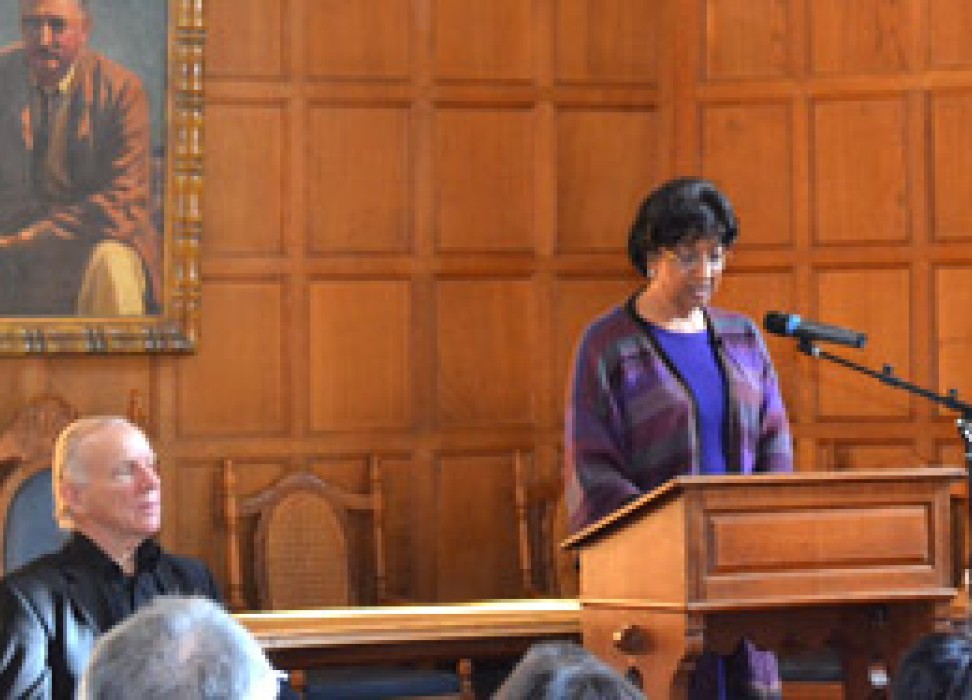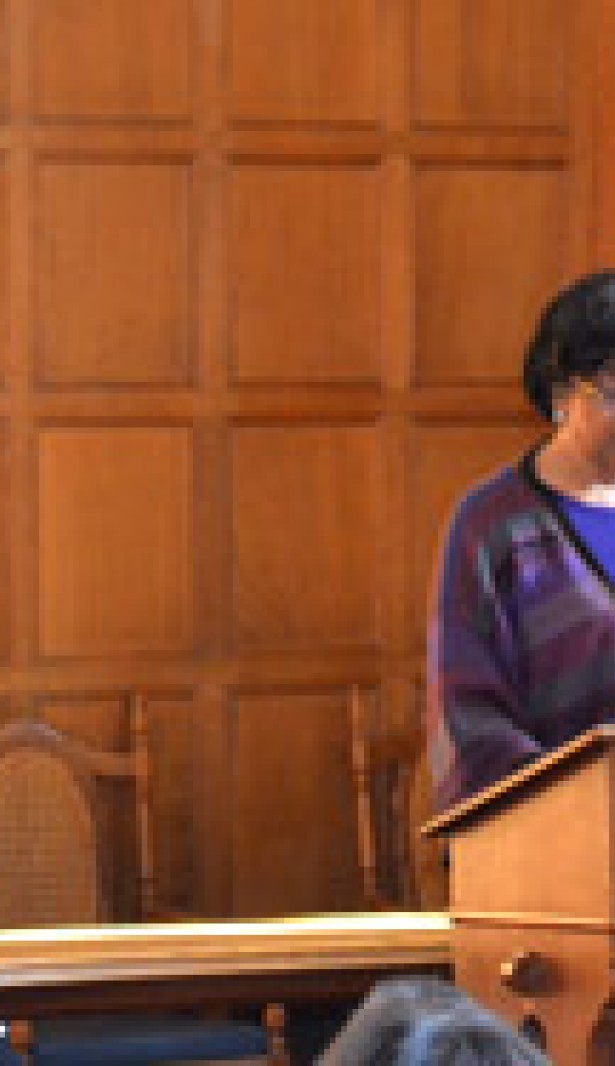Human rights in Africa: progress and challenges
28 February 2013

“No one should be excluded from decision-making because they are African, or female, or belong to a minority, or worship a certain religion, because they are gay, have a disability or particular beliefs. We all should have a voice that counts in our societies,” UN Human Rights chief Navi Pillay said at Oxford University.
She began her lecture to the Rhodes House scholars by praising the work of human rights defenders in Africa, observing that without them many democratic societies in the continent and elsewhere “would lose a vital pressure point and resource.”
Describing human rights defenders Pillay said “They uphold the right to education and equality, to freedom of speech and of opinion. They campaign against the exploitation of natural resources by exploitative multinationals and overlords who seek to dispose of the nation's property as though it were their own.”
“They demand an end to the situation where unaccountable governments and anonymous institutions make decisions affecting peoples’ lives without their involvement.”
She pointed out that at the international level, the whole credibility and value of our UN human rights system is underpinned by the participation of these and other actors of civil society, through their contributions of expertise and awareness-raising, their monitoring and reporting, and mobilization of public support.
But sadly, she noted that human rights defenders in Africa and other parts of the world continue to be subjected to harassment, death threats, and vicious attacks.
The Bram Fischer Memorial Lecture is an annual series in honour of the renowned South African human rights lawyer, notably for anti-apartheid activism and legal defence of anti-apartheid leaders, including former South African president Nelson Mandela and other leaders of the liberation movement when on trial for their lives. Fischer died in 1975 whilst in prison.
“The human rights defenders of Africa are standing firm and staring down monsters – just as Bram Fischer did,” Pillay said.
In her lecture, the High Commissioner noted that when facing acute threats to security, State authorities often are under pressure to adopt swift measures to prevent and combat terrorist acts. Yet at times their actions compromise on respect for human rights and the rule of law.
Pillay called for the regular review of counter-terrorism laws noting that they should be assessed against international human rights law, to ensure that they are specific, necessary, proportionate and effective.
“For misuse of laws is not only unjust, it is also counter-productive. The way to fight terrorism is to protect and promote human rights and the rule of law, since that will create a climate of trust between citizens and the State,” Pillay said. The UN Human Rights chief also addressed the issue of elections in Africa observing that this year at least 15 countries are scheduled to go to the polls. She went into detail explaining the electoral monitoring work done by the Office of the High Commissioner for Human Rights, which is present in 24 African countries.
She said elections are the defining opportunity for people to freely exercise their civil and political rights. “But they are also a critical transitional moment with a great deal at stake,” she added, “and they can exacerbate, revive or trigger violence or conflict and related human rights violations.”
In her conclusion, she focused on democracy as a living, evolving process, within human rights and encouraged inclusive societies in which everyone can contribute.
The UN High Commissioner for Human Rights delivered the Bram Fischer Memorial Lecture, titled “Human rights in Africa: opportunities and challenges,” on 14 February.

VIEW THIS PAGE IN:
